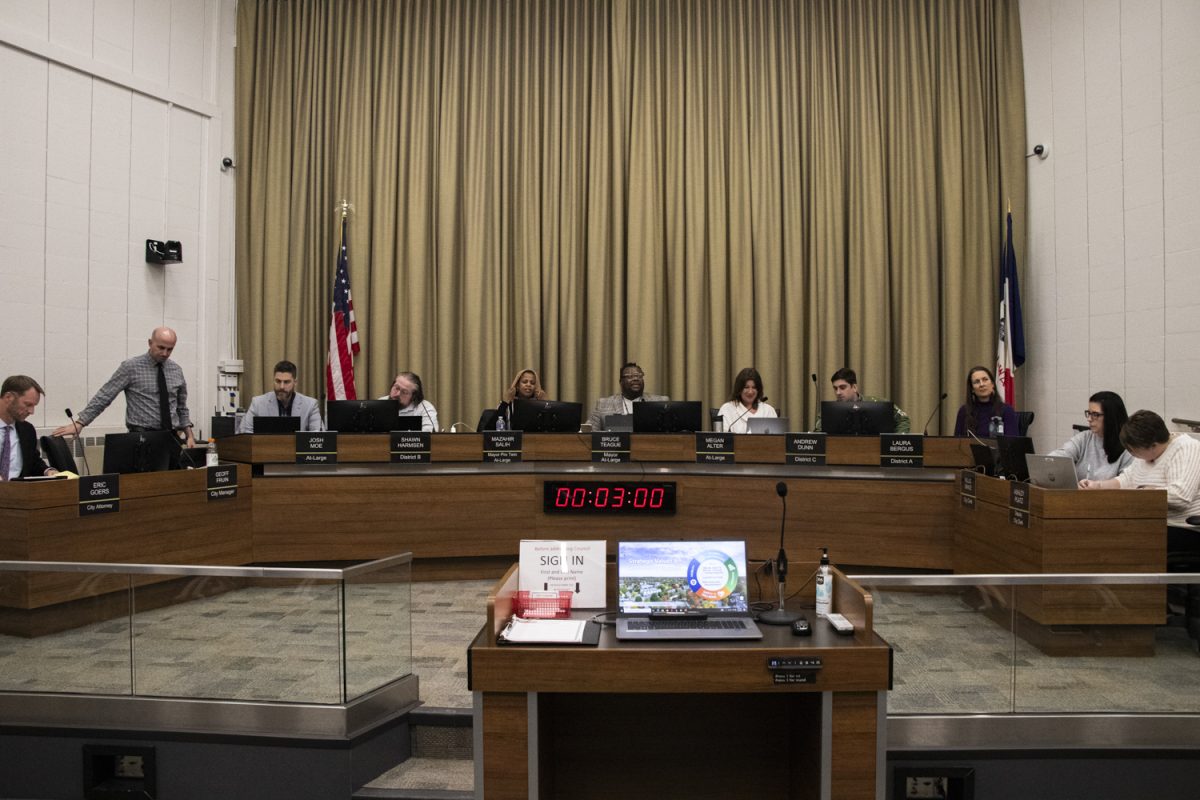Iowa City residents will no longer be able to apply for public housing units because of a years-long waitlist for the city’s public housing program.
The Iowa City Housing Authority recently announced its decision to close applications for the Public Housing Program starting on Oct. 1 because the program’s waitlist has grown to be three years long.
The Iowa City Housing Authority, Shelter House, and the Cedar Rapids Housing Services Department have all noticed the rising problems due to a lack of affordable housing.
The Iowa City Housing Authority currently runs two major programs: the Housing Choice Voucher Program and thePublic Housing Program, which both aim to provide services to families or individuals struggling to find affordable housing.
Rachel Carter, housing administrator of the housing authority, said the Housing Choice Voucher Program allows tenants to receive a voucher and utilize it with any private landlord in the jurisdiction that will accept the voucher.
According to USAGov, families with a low income, seniors, and people with disabilities can apply for vouchers, which can pay for all or part of their rent.
The Public Housing Program is another program funded by the Department of Housing and Urban Development, and it allows the city to own and provide 86 units to those in need. Tenants are then required to pay 30 percent of their income for rent, Carter said.
In addition, the program prioritizes applicants of those who are elderly, disabled, or have children in the household, according to a press release by the Iowa City Housing Authority.
However, as the wait time for public housing units grew to thousands of names long, the city has decided to close applications on Oct. 1.
“Our average length of tenancy is seven years, but we certainly have tenants who’ve been with us 20 to 30 years,” Carter said. “It’s just getting to a point where we’re implying that there is easy availability by having the waitlist open, and there’s not — we don’t have a lot of turnover.”
RELATED: IC navigates next steps for $3.75 million U.S. Housing and Urban Development grant
The applicants currently on the waitlist will remain on the list until they either come to the top of the list and are placed in a unit or request to be removed from the list, according to the Iowa City Housing Authority.
Christine Hayes, director of development and communication at Shelter House, spoke about the lack of affordable housing, the services offered, and the challenges being faced.
“We know the solution to homelessness is making sure that everyone has access to housing that is safe, accessible and affordable — it’s not that difficult,” Hayes said. “From a complicated standpoint, it is difficult finding the money, finding the time, finding the political will.”
Shelter House, which is located on 429 Southgate Ave. in Iowa City, aims to support those who are struggling with homelessness. Hayes said Shelter House has 70 beds, but the waitlist for a bed has continued to grow over the past six to 12 months.
Shelter House provides services to approximately 2,000 people a year, including rapid rehousing services, which help people exit the shelter and move into housing. Shelter House also has permanent supportive housing, both in apartments that it owns for those who have exited chronic homelessness.
Hayes anticipates more frustration and increased rent because of the Public Housing Program closing. Hayes said creating more apartment buildings with inclusionary zoning, which includes more affordable housing for low and moderate-income households, will help increase affordable housing.
Sara Buck, housing services manager at the Cedar Rapids Housing Services Department, shared the challenges the organization has faced along the way with closing its own Housing Choice Voucher Program.
“Ten or 12 years ago, we closed it for the first time, and we had a 10-year waiting list,” Buck said.
Buck said the Cedar Rapids Housing Services Department will continue to work with nonprofits, funders, and other agencies to address homelessness and housing affordability in the community.
“We’re seeing more and more folks that are needing more assistance in housing,” Buck said. “Certainly, we can always request more money, but that doesn’t always happen either, and they’re just having a hard time keeping up with the expenses and the rising costs of all of the housing vouchers as well.”



